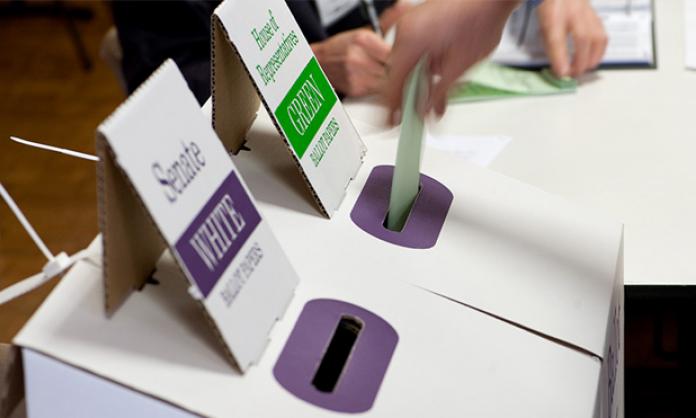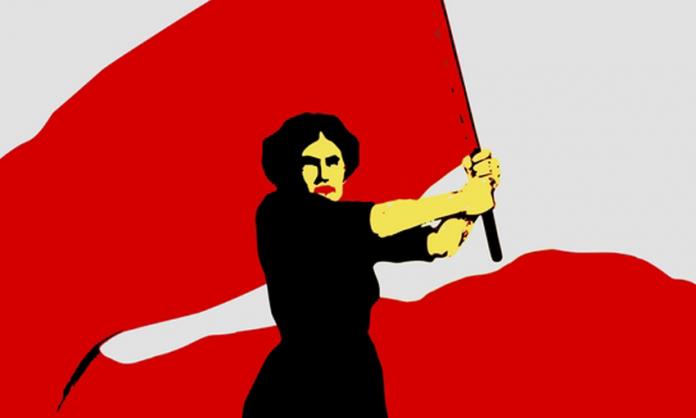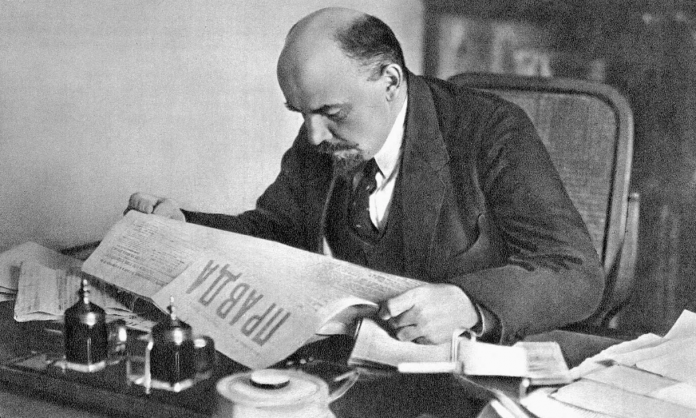During the chaos of the 1870-71 war between France and Prussia, French workers seized control of Paris, running the city in a radically democratic way. The Paris Commune proved that socialism could be built through the direct self-organisation of the working class. And it convinced Karl Marx that workers can’t just take over the existing state apparatus, but need to take power through their own institutions, which are far more democratic than “deciding once in three or six years which member of the ruling class was to misrepresent the people in parliament”.
The short-lived Paris Commune also rippled through Europe’s parliaments. In Prussia, socialists inspired by Marx had been elected. They used their position to denounce the war, even at the height of nationalist fervour, and had been briefly imprisoned for it. Now released from prison and back in the parliament, the German socialist August Bebel praised the revolutionary French workers, repeating their slogan: “War on the palaces, peace for the cottages”.
A little while later, he was convicted of treason, along with his comrade Wilhelm Liebknecht. From their prison cells, they won re-election to the parliament on a socialist vote that had more than doubled. They had used their platform in parliament to condemn the state, to build international working class solidarity at a time of war and to raise the banner of the revolutionary French workers across Europe.
It was a heroic socialist use of the parliamentary system. But this success bred disaster. The German socialists were brilliant parliamentary advocates. Over the next decades their representation in parliament grew, and their party became focused on contesting and winning elections. The socialist movement became entangled and absorbed into the kingdom it was fighting against.
By the time World War One began in 1914, the German socialist movement had become so transformed that its parliamentary wing supported that imperialist war, which was so many times more horrific than the war against which Bebel and Liebknecht had spoken. The most important socialist party in Western Europe became pro-war and counter-revolutionary. Many factors led to this betrayal, but the entanglement in the parliamentary system was an important one.
**********
Yet socialists can’t ignore parliament. It’s where official politics happens, where bills become law and where social priorities are apparently decided. By contrast, political and democratic decision-making is excluded from our working life, and from our apparently private worries. (This is why the socialist call for "political class struggle" and the feminist slogan “the personal is political” have both been so significant.)
Parliament is meant to be a decision-making body open to everyone on equal terms: rich and poor, man and woman, black and white and so on. Each vote is supposedly of equal weight, so the inequalities in society are washed away during an election: parliament is an equalised model of society, with all main currents of opinion represented, in which decisions can be made that represent the will of the people.
Of course, it’s nothing of the sort. Parliamentarians become members of the upper classes, and most are drawn from the middle classes. They move in circles of the rich and powerful. Their campaigns are funded by the rich, and the capitalist media set their preferred boundaries for electoral debates. Loyal politicians are given handouts and sinecures after leaving parliament.
This system of peaceful patronage is so well entrenched that we often struggle to imagine what would happen if a politician rebelled against it. But most power in society is outside parliament – it’s in the hands of the CEOs and corporate chairs who control most of the economy.
So rebellious governments can be directly disciplined by the ruling class between elections: capitalists can use their unaccountable economic power to create economic havoc, and routinely do so when genuine leftists form government.
Infrequent elections help keep the system this way. We barely see, and most of us probably couldn’t name, our local parliamentary “representative”. But big capitalists know them personally, and can interact with them – and in various ways help them form the “right” opinions – whenever they need to.
If that doesn’t work, the unelected parts of the state can wipe out difficult governments. Courts can overturn their decisions. Officials can dismiss them and dissolve parliaments. Bureaucrats can create social turmoil by sabotaging their directives. And, ultimately, army officers can, when needed, step in to install military rule.
The elected parts of the state are a relatively tiny part of society, with little direct power, and they can be curtailed or dissolved when the system requires. Real power lies outside them.
Parliaments weren’t always seen as democratic. Most were originally small councils of aristocrats, elected by a tiny minority of the population, before the right to vote was widely assured. In much of the world, an important goal of the early socialist and workers’ movements was to win the right to vote for everyone. Once that was achieved, the ruling class had to develop new strategies to deal with the new parliament. Racial discrimination, gerrymandering, and candidate disqualification helped limit the impact of universal suffrage.
But so did the process of incorporation: allowing workers’ parties into government, promising the power to govern capitalism and converting them into a powerful component of the capitalist political system. It’s a powerful lure when the state seems like the only institution capable of changing the world, and “politics” means what happens in parliament.
This process of incorporation has been ongoing for a century. Now, countries around the world have political parties called “Socialist Party”, “Labour Party”, “Workers’ Party” or something like it, which have generally perpetrated some of the worst crimes against the working class, and are discredited and hypocritical parts of the hated political establishment.
Revolutionary socialists have tried to build a different type of political party: one that seeks to extend democracy beyond parliament and turn the streets and workplaces into institutions of collective political struggle. The ultimate goal is to develop from these struggles democratic institutions through which the working class can rule directly.
A revolutionary party’s world view, structure and tactics have to differ totally from those of political parties that just promote the election of candidates in parliament. But when a revolution isn’t happening, and parliamentary elections are, what are revolutionaries to do?
The lure of parliament and the dangers of incorporation have led some on the left to renounce elections entirely. This goes beyond a tactical boycott of a particular election and becomes a general principle that revolutionaries must never run for parliament.
It’s a simple solution, but it carries dangers. Even during revolutions, “official” elections exert a powerful influence on people’s consciousness. Up to the point when workers are ready and willing to seize power, most consider capitalist elections to be the highest form of politics, and the boundaries of politics are set partly by who contests elections.
During the Russian Revolution of 1917, the Bolsheviks ran for election even to the local city councils because it allowed them to explain their whole world view and how it connected to their struggles in the workplaces.
Two years later, workers’ councils spread throughout Germany. These were institutions of workers’ democracy and embryos of a new society in which workers ran everything. The ruling class tried to smother them by calling elections to a National Assembly. The famously intransigent revolutionary Rosa Luxemburg argued that her fledgling Communist Party should stand candidates in the National Assembly elections, so they could undermine that very assembly and to advocate for the workers’ councils: "We have to show the masses that there is no better answer to the counter-revolutionary motion against the system of councils than to achieve a massive demonstration of voters, who vote for precisely those people who are against the National Assembly and for the system of councils.”
Luxemburg, who spent her life fighting against the betrayals associated with parliamentary “socialism”, still saw the need to contest elections – precisely to undermine the authority of ruling class institutions.
Luxemburg’s approach has little in common with present-day parliamentary socialists like Jeremy Corbyn or Bernie Sanders, who have downgraded their definition of “socialism” to mean “whatever reforms can be achieved through parliament”.
The revolutionary approach isn’t about forming government. Those who believe that it is are compelled to subordinate principles to the need to form and keep a parliamentary majority, under rules designed to keep real power in the hands of the ruling class.
Some have advocated trying to wield both strategies at once, to be “in and against the state”. But if a parliamentary majority in a capitalist parliament were a necessary precondition for socialism, then the strategy for socialism would have to rely on making peace with existing institutional powers that discipline capitalist governments.
Revolutionaries use elections as a platform to advocate for socialism, to disrupt the consensus-building process of bourgeois elections and to build faith in the working class and in the possibility of a world organised for human need.










